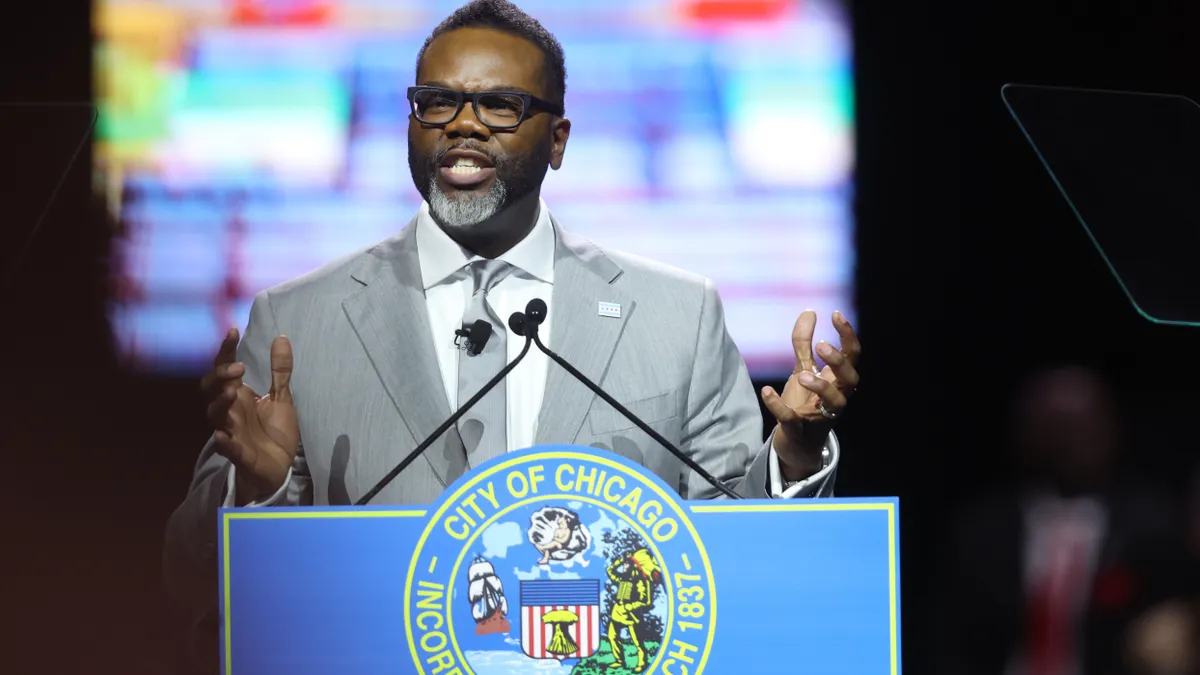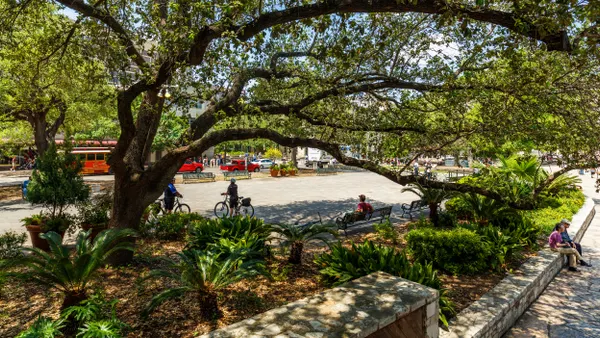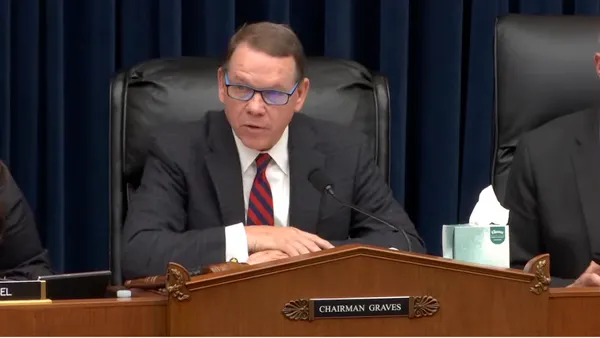Dive Brief:
- Reparations for Black people could be a step closer to reality in Chicago, with Mayor Brandon Johnson announcing Monday the establishment of a Black Reparations Task Force, according to a news release.
- The task force of city officials and local Black policymakers will study the policies that have harmed Black Chicagoans since slavery and make a series of recommendations on how to remedy those harms.
- Chicago joins a growing list of U.S. cities studying reparations programs, although few have come to fruition thus far. Such efforts have been met with pushback from some conservative groups and lawmakers.
Dive Insight:
The legacy of slavery, Jim Crow laws that legalized racial segregation and other discriminatory practices reverberates to the present day. The impacts on today’s Black Chicagoans include disparities in life expectancy, unemployment, homeownership rates, home values and incarceration, according to a news release from Johnson’s office.
Chicago officials initially promised to study reparations for the descendants of enslaved African Americans after the police murder of George Floyd in Minneapolis in 2020. That work never materialized, with just one meeting scheduled over 20 months, according to local news station WTTW.
Chicago Alderwoman Stephanie Coleman, who pushed for the 2020 reparations effort, said in a Monday statement, “We will not be ashamed of who we are, and what we have overcome.”
The reparations push got a lifeline last year when Johnson earmarked $500,000 for studying reparations in the city’s 2024 fiscal year budget.
In Monday’s announcement of the task force, Johnson said, “Today's Executive Order is not just a public declaration; it is a pledge to shape the future of our city by confronting the legacy of inequity that has plagued Chicago for far too long.” In his executive order, Johnson also issued an apology on behalf of the city for the historical wrongs committed against Black people. His announcement comes in the runup to Juneteenth, which celebrates the effective end of slavery in the U.S.
The Chicago task force’s work will include:
- Defining reparations.
- Engaging the community to gather testimonials from Black people with lived experience of harm.
- Identifying core issues for reparative action, such as housing, health and over-policing.
- Recommending appropriate remedies and restitution for past injustices and present harm that aligns with international standards for reparations.
- Recommending ways to educate the public on the task force’s report.
Nearby Evanston, Illinois, became the first U.S. city to begin paying reparations to Black residents through a program approved in 2021. The city is doling out $25,000 each to those who can prove they or their direct ancestors lived in Evanston between 1919 and 1969, when the city enforced segregation.
The city has promised to distribute $10 million funded through a sales tax on recreational marijuana. A real estate transfer tax also supports the initiative.
As of August 2023, the city said it had disbursed more than $1 million through its reparations program. It plans to give funds to at least 80 more residents in 2024. The city notes on its website that the number of eligible recipients outnumbers currently available funding, but the money will be disbursed as revenue is received. Hundreds of people are still on the waiting list, The Washington Post reported in June.
Other cities considering reparations include Boston; St. Louis, Missouri; Providence, Rhode Island; St. Paul, Minnesota; Asheville, North Carolina; and Berkeley, California, according to the National League of Cities.
Last month, the California Senate advanced several reparations-focused bills, including one to create a reparations fund and another to create an agency to help Black families study their family lineage to determine if they could be eligible for such programs.
Such efforts are not without pushback. U.S. Rep. Brian Babin, R-Texas, introduced a bill last year that would block the federal government from providing financial assistance to states or local governments with reparations programs. Tennessee state lawmakers in April voted against a bill that would have stopped counties from examining reparations for those whose family members were enslaved. Last month, conservative advocacy group Judicial Watch filed a lawsuit against Evanston seeking to end the city’s reparations program.












